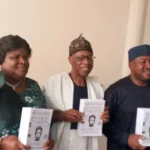Busayo Onijala
Some education stakeholders have adopted a code of conduct for use by primary and secondary schools in Lagos State to ensure a safer environment for learning and growth.
They adopted the code as a working document at a seminar organised by the Lagos State Ministry of Education in collaboration with the United Nations Educational, Scientific and Cultural Organisation (UNESCO) and the Society for Family Health(SFH).
The News Agency of Nigeria (NAN) reports that the UNESCO’s “Our Rights, Our Lives, Our Future (O3)” project, working on school rules and regulations, is being implemented by SFH.
It contains regulations for students’ general conduct, dress code and grooming, disallowed items, health and environmental regulations, sexual behaviour, school activities and exam malpractice.
The document also highlights various offences that might be committed by students and staff, and accompanying punishments.
Dr Adejare Afolabi, Deputy Director, Planning, Policy, Research and Statistics at the Lagos State Education Ministry, said that the document would help instil peace and order in the school system.
Afolabi, who represented Mr Abayomi Abolaji, Permanent Secretary in the ministry, noted that it would be difficult for any organisation to operate and maintain order without rules and regulations guiding the conduct of its members.
According to him, any nation that will be great must ensure that the future leaders are properly brought up so they can conform with basic standards.
“Once there are rules, every child knows what to do and what not to do while also being aware of consequences for disobedience.
“These rules will protect schools and students from anything that can endanger them.
“It contains students rights, expectations from students, administrators, parents as well as teaching and non-teaching staff in order to avoid misconduct,” Afolabi said.
Giving an overview of the project, Dr Segun Oyedeji, a Deputy Chief of Party, SFH, said it envisioned that young people in South Saharan Africa were empowered, educated, healthy and should become resilient.
According to him, they should have the capacity to reach their full potential and contribute to the development of their community, country and region.
He said SFH was contracted in 2019 by UNESCO to develop an assessment to determine the level of inclusion of rules and regulations in Nigerian schools.
This assessment, he said, was geared towards implementing the “Our Rights, Our Lives, Our Future(O3)” project in Nigeria.
“This is to reduce gender-based violence directed at school learners and to create a safe space for learners at all levels.
“The assessment of school rules and regulations was to ascertain if issues including HIV, Sexual and Reproductive Health Rights. School-Related Gender Based Violence (SRGBV), and others are included or integrated.”
Oyedeji said that while carrying out research for the project, all school rules and regulations were assessed to determine the level of inclusion of school-related gender-based violence concerns.
These, he said, included bullying, physical and verbal violence, corporal punishment, sexual violence and learner sexual abuse, sexual harassment and adolescent dating violence.
“The purpose of the study was to generate evidence to inform and guide programming of the UNESCO 03 programme by identifying deficiencies in the policy and programming environment for learners.
“Designing and implementing solutions to overcome these challenges, thereby enabling learners to reach their full potential, unhindered by gender-based violence and other harmful practices.”
In her goodwill message, Dr Comfort Otegbeye, Vice President, National Association of Proprietors of Private Schools (NAPPS), Lagos chapter, said the initiative by UNESCO was a welcome development, adding that it was long overdue.
Aisha Dadi, the Project Director of the UNESCO project in SFH, stressed the need for the Lagos State government to ensure they monitored the implementation.
She said they should ensure that both parents and students were adequately informed of the rules, and consequences of breaking them in different forums including PTA meetings, orientations at the start of new sessions, among others.
“The code of conduct document will make Lagos schools be on the same page,” she said.
NAN also reports that directors and teachers present made recommendations, observations and amendments to the content of the document which will be made available to schools in September.
Edited by Kevin Okunzuwa/Oluwole Sogunle












